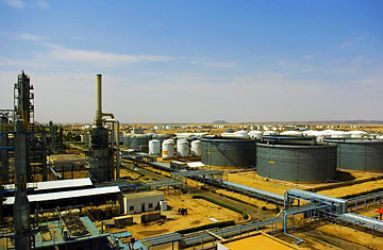Juba government expresses need to audit Sudan’s oil figures
By James Gatdet Dak
September 11, 2009 (JUBA) – The Government of Southern Sudan expressed today the need to establish an audit to oil figures published by the Sudanese federal authorities.

The report further said that there is a difference of figures ranging from 9 to 26% in oil blocks located in Southern Sudan.
However the figures have matched in Block ‘6’ which is located in the North and not being shared between the two regions according to the 2005’s peace deal.
The Southern Sudan cabinet in its weekly meeting on Friday has resolved the need to establish an independent audit, possibly an international one, to look into the discrepancies for confirmation.
It also resolved to share the report with the Southern Sudan Legislative Assembly before the government could take any appropriate measures to resolve the issue with the Government of National Unity.
The Minister of Information and Broadcasting, Paul Mayom Akech told the press that the report had sensitized the government and would serve as the basis for further follow up on the matter.
Mayom added that the government would investigate the matter with the aim to arrive at a “correct, just and acceptable wealth sharing in respect to oil.”
Government of Southern Sudan has been expressing concern over lack of transparency in the oil production and marketing since 2005.
Its attempts to formulate and implement a transparent system in the oil industry have been resisted by Khartoum over the years.
According to the CPA’s wealth-sharing agreement, the South should receive 50% of oil revenues generated from the oil produced in its territory.
Oil revenues comprise 98% of the semi-autonomous region’s income, more than any other government in the world.
“Mismatches of this magnitude represent potentially massive sums of money….for example, 10%, the southern government would be owed more than $600 million (on the basis that the Government of Southern Sudan has received more than $6 billion in oil revenues since the signing of the peace agreement). This is more than three times the south’s combined annual budgets for health and education,” Global Witness said.
“Our findings do not necessarily mean that Khartoum has cheated the south out of money, but they do highlight the need for transparency. Unless the Government of Southern Sudan and Sudanese citizens can verify that the revenue sharing is fair, mistrust will grow and the peace agreement could be jeopardized,” the watchdog further stressed.
(ST)
